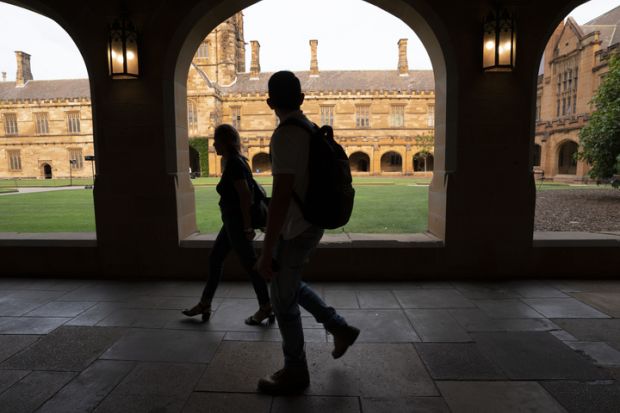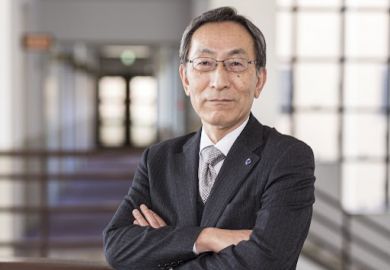Australia’s oldest university has swum against the tide in refusing to take an institutional position on the forthcoming referendum over whether an indigenous body should advise parliament.
While the University of Sydney’s top leaders have proclaimed their personal support for a “yes” vote, they have explicitly avoided taking an institutional stance. In a message posted on the university’s website, chancellor Belinda Hutchinson and vice-chancellor Mark Scott said it was more important for “everyone to be informed”.
“The most significant power will come not with a statement on an institution’s behalf, but with our community’s empowered voices actively partaking in this vital democratic engagement,” they said.
The position puts Sydney at odds with at least 22 universities in every state and territory. All have announced support for the referendum’s underpinning document, the Uluru Statement from the Heart, which advocates constitutional recognition of a “First Nations voice”.
They include the other large research-intensive universities of Melbourne, Monash, Queensland and UNSW Sydney. Many institutions have also explicitly backed a “yes” vote.
Ms Hutchinson and Professor Scott said their decision had followed lengthy discussions in the university executive and senate. “Some have felt that even though the university has never taken institutional positions on contentious societal matters of the past…this is a matter of such importance that we should do so this time,” they said.
“There were other concerns that a statement by the university indicating a position would suggest unanimity in view or seek to impose an institutional perspective.”
Sydney likewise avoided taking sides in the 1967 referendum to constitutionally recognise Aboriginal and Torres Strait Islander people and allow Canberra to legislate on their behalf. It was one of the few Australian referenda that succeeded, attracting support from more than 90 per cent of voters.
More recently, Sydney earned condemnation for not taking a position in the 2017 debate over same-sex marriage. A postal survey on this issue again proved decisive, with more than 60 per cent of respondents backing equal marriage rights.
Sydney has published a statement acknowledging the “pivotal importance” of the looming referendum and proclaiming a commitment to “advancing reconciliation” and eliminating discrimination. “We recognise our own role in the extended process of colonisation and our past in the denial of equal rights,” it says.
But it stresses the university’s “underlying responsibility” to support democratic processes by providing “reliable” information, analysis and academic expertise. “Critical to this obligation is upholding the principles of freedom of speech and academic freedom.”
James Cook University (JCU), the University of the Sunshine Coast (USC), the University of Notre Dame Australia and Murdoch University have also refrained from adopting institutional positions. JCU, whose chancellor is Aboriginal physician Ngiare Brown, stressed its commitment to reconciliation and the democratic process. “We will work with the communities we serve to provide access to information and support civic dialogue,” it announced.
USC said it supported the referendum process. “We are committed to facilitating conversation, discussion and information sharing,” its statement says.
Murdoch said all 14 members of its senior leadership supported an indigenous voice to parliament. “While stating our personal support for a ‘yes’ vote in the referendum, we understand there are many different points of view, and we remain committed to our foundational principles of academic freedom and freedom of speech,” said vice-chancellor Andrew Deeks.
Fourteen universities have not revealed any position on the referendum.




